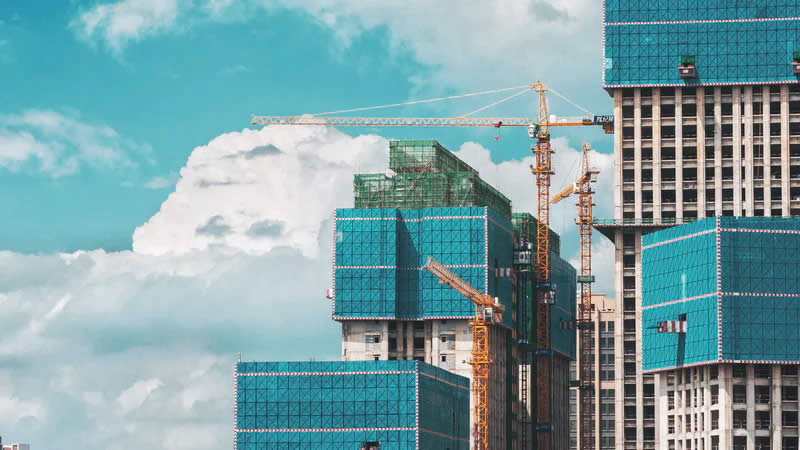Stephens Plastics: Supplying Durable Moulded Components for the UK Construction Sector
From facades to formwork, today’s construction projects increasingly rely on construction injection moulding to deliver long-lasting, weather-resistant components. At Stephens Plastics, we have built strong partnerships with architects, contractors, and OEM suppliers by manufacturing plastic parts engineered for the harshest environments.
In this comprehensive guide, we outline how injection moulding meets the demands of modern building projects. We cover materials, applications, and standards – ensuring you can specify with confidence.
Why Construction Projects Use Injection Moulded Plastics
Construction is one of the most demanding industries when it comes to material performance. Products must endure:
- Temperature extremes.
- UV exposure.
- Heavy loads.
- Moisture and chemicals.
- Installation wear and tear.
Injection moulding creates customised, construction-grade materials that meet these challenges while offering faster production and lower costs.
Key Advantages of Plastic Moulding for Building Projects
1. Weather Resistance
Injection moulded parts can be UV-stabilised, corrosion-proof, and moisture-resistant. This makes them ideal for long-term outdoor use.
2. Consistent Quality at Scale
Once the tool is made, every unit is dimensionally identical. This improves fit, function, and installation efficiency across large builds.
3. Custom Design for Performance
Need anti-slip features, vented panels, or integrated mounting points? Injection moulding allows high design freedom.
4. Weight Reduction
Lighter parts reduce transport costs and make handling on-site safer and faster.
Common Applications in the Construction Industry
1. Facade and Cladding Systems
Plastic trims, spacers, and backing systems play a vital role in facade assemblies. They provide durability without adding structural load.
Materials Used: Polypropylene (PP), ABS, ASA
2. Formwork and Mould Inserts
Reusable moulded components for concrete formwork offer repeatability and long life. Unlike wood or metal, they resist warping and corrosion.
Benefits: Clean release, light handling, lower maintenance.
3. Cable and Pipe Management
From clip systems to underground ducting, plastic moulded products ensure neat, secure routing with weather resistance.
Materials Used: Nylon, HDPE, PP
4. Drainage and Ventilation Systems
Plastic grates, covers, and air bricks are injection moulded for robust airflow and water management.
Materials Used: PP with UV stabilisers, flame-retardant additives where needed.
5. Fixtures and Fittings
Door stops, seal brackets, safety shields, and spacers are often injection moulded due to their small size and frequent replacement.
PP Injection Moulding in Construction
Polypropylene (PP) is one of the most commonly used materials in construction injection moulding due to its:
- UV resistance.
- Chemical inertness.
- Impact strength.
- Thermal insulation properties.
It is ideal for exterior use and parts exposed to heavy wear.
Outdoor Moulding: Design and Performance Requirements
When manufacturing parts for outdoor use, we focus on:
- UV stabilisation for sun exposure.
- Drainage integration.
- Non-slip textures.
- Resistance to algae and mould growth.
These requirements are met through material choice, surface finish, and additive packages during the moulding process.
Building Product Plastics: Choosing the Right Material
Choosing the right polymer depends on:
- Application: Load-bearing, aesthetic, or weather-exposed?
- Environment: Moisture, sun, vibration, or chemical exposure?
- Life expectancy: Temporary formwork or permanent fixings?
- Compliance: Fire safety, toxicity, or strength requirements?
Stephens Plastics provides full guidance and data sheets to support specifiers and procurement teams.
Partnering with Stephens Plastics for Construction Projects
We offer:
- Design consultation to maximise performance.
- Prototyping for custom architectural components.
- Mass production capabilities with guaranteed lead times.
- Certification for quality and compliance.
We also maintain ISO 9001 and supply chains capable of scaling up for national infrastructure and modular housing programmes.
FAQs: Construction Injection Moulding
What’s the lifecycle of a construction-grade moulded part?
Properly designed parts can last 10-30 years, especially with UV and chemical-resistant additives.
Are these materials recyclable?
Yes. Most thermoplastics used – like PP and HDPE – can be recycled, supporting sustainability in construction.
What regulations apply to plastic building parts?
Products must comply with CE/UKCA marking, BS EN standards, and site-specific codes. Stephens Plastics helps ensure material traceability and compliance.
Can you colour match components?
Yes. We offer full colour-matching services using masterbatches for both aesthetic and safety-compliant hues.
Conclusion: Durable Solutions with Stephens Plastics
Construction demands performance. At Stephens Plastics, we meet those demands with weather-resistant, precision-moulded components engineered for long-term use.
Whether it’s PP injection moulding for ducting or customised plastic fittings for facade systems, we bring expertise, scalability, and compliance to every project.
Contact Stephens Plastics Today
Discuss your next construction plastics project with our technical team:
Email: sales@stephensplasticmouldings.co.uk
Phone: 0121 544 5808





